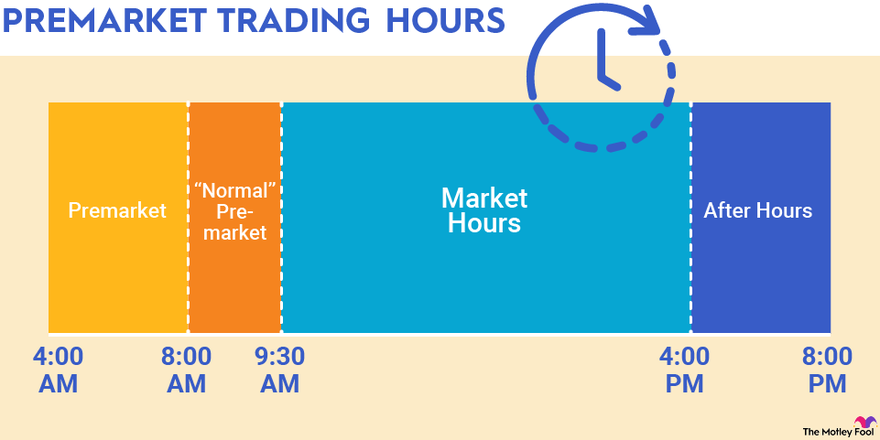Are you curious if you can view stock prices after hours? In this article, we will explore the world of after-hours trading and how it can affect stock prices.

Credit: www.fool.com
What is After-Hours Trading?
After-hours trading refers to the period of time after the regular market hours, during which investors can continue buying and selling stocks on certain exchanges. While the after-hours session allows for extended trading opportunities, it is important to note that not all order types are accepted during this time.
During after-hours trading, only limit orders can be used to buy, sell, or short stocks. This means that investors must specify the exact price at which they are willing to transact, rather than relying on market orders that automatically execute at the best available price.
Effects on Stock Prices
After-hours trading has the potential to impact stock prices in several ways. One significant factor is the reduced number of participants during this time compared to regular market hours. With fewer participants, trading volumes and liquidity decrease, leading to wider bid-ask spreads and increased volatility.
The limited trading activity in after-hours sessions can cause stock prices to be more volatile. This volatility can be attributed to market orders being absent during this time and the presence of traders with different motivations than those during regular trading hours.
Benefits and Risks of After-Hours Trading
Before engaging in after-hours trading, it is important to consider both the advantages and risks associated with this practice.
Advantages:
- Extended trading window: After-hours trading provides investors with additional time to react to news or events that may impact stock prices.
- Access to international markets: After-hours trading sessions can provide exposure to international markets that may be more active during these times.
Risks:
- Lower liquidity: With fewer participants, after-hours trading can have lower liquidity, potentially leading to wider bid-ask spreads and difficulty executing trades at desired prices.
- Higher volatility: The reduced trading volumes can result in higher price volatility and potentially increased risks for investors.
- Limited order types: During after-hours trading, only limit orders are accepted, limiting the range of trading strategies available to investors.
Tools and Resources for After-Hours Trading
Several online platforms and financial websites offer tools and resources for investors interested in after-hours trading. These tools can help monitor after-hours stock quotes and market activity.
Here Are Some Popular Resources:
| Website | Description |
|---|---|
| Nasdaq Market Activity | Get the latest after-hours stock market quote data from Nasdaq. |
| MarketWatch After-Hours Screener | Monitor leaders, laggards, and the most active stocks during after-market hours trading. |
| CNBC Markets After Hours | Stay updated with what’s happening in U.S. markets during after-hours trading. |
It is important to conduct thorough research and consult with a financial advisor before making any investment decisions.
:max_bytes(150000):strip_icc()/dotdash_INV-final-Use-Market-Volume-Data-to-Determine-a-Bottom-May-2021-01-963caf1cc4ac41bf8e3271f6ada9dc1f.jpg)
Credit: www.investopedia.com
Frequently Asked Questions On After Hours Stock Trading Prices: Unlock The Hidden Potential
Can You See Stock Prices After Hours?
Yes, you can see stock prices after hours as trading continues beyond regular market hours, affecting prices.
How Does After-hours Trading Affect My Stock Price?
After-hours trading can impact stock prices due to lower liquidity and increased volatility, affecting bid-ask spreads. It’s essential to consider these factors when evaluating your investment during after-hours trading sessions. This may cause prices to fluctuate differently from regular market hours.
Is After-hours Trading More Expensive?
After-hours trading may have wider bid-ask spreads and more volatility due to lower trading volumes. However, commissions and settlement times remain the same as in regular sessions. Certain order types may not be accepted in after-hours trading.
What Is The 10 Am Rule In Stock Trading?
The 10 am rule in stock trading is a guideline that suggests waiting for initial market volatility to settle before making trades.
Conclusion
After-hours trading provides investors with the opportunity to trade stocks outside of regular market hours. While it can be advantageous in terms of extended trading windows and exposure to international markets, it also comes with risks such as lower liquidity and increased price volatility.
Before engaging in after-hours trading, investors should carefully consider their investment goals, risk tolerance, and consult with professionals to ensure they are making well-informed decisions.

